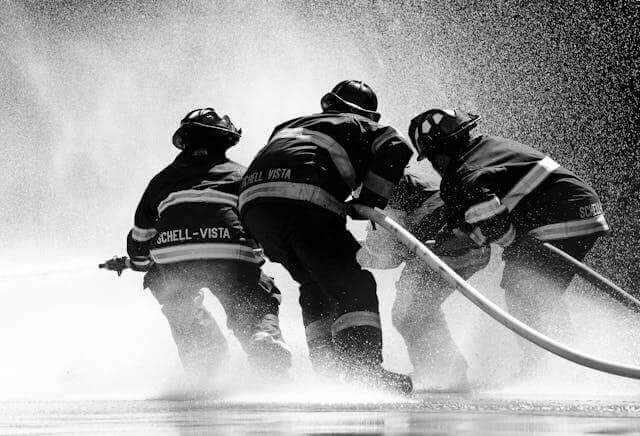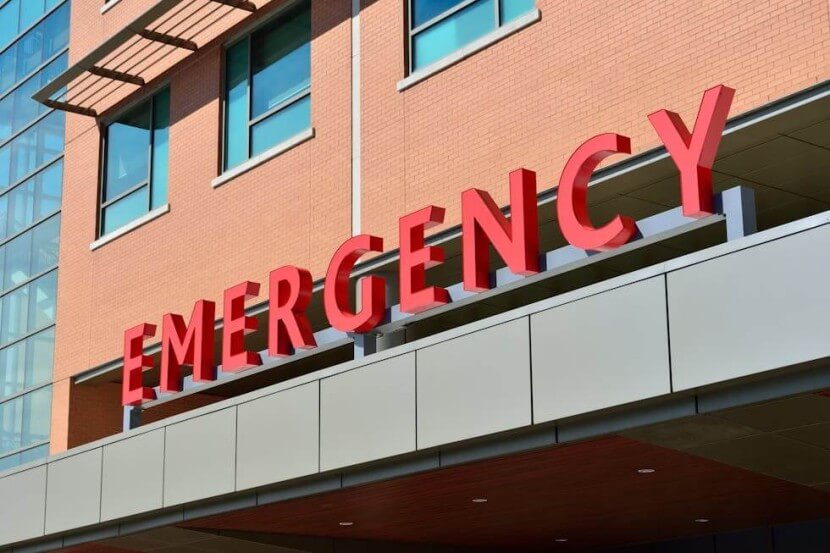Table of Contents
Introduction to German Emergency Vocabulary
When traveling or living in German-speaking countries, it’s crucial to know how to handle emergency situations. Understanding basic emergency vocabulary can make a significant difference when you need help or assistance. This beginner-friendly guide will introduce you to essential German words and phrases related to emergencies.
In this article, we’ll cover important terms, provide example sentences, and offer resources to test your knowledge. By the end, you’ll feel more confident navigating emergencies in German.
German Emergency Vocabulary List
Below is a list of common German words related to emergencies, suitable for beginners at the A1-A2 levels. Get to know these terms to enhance your safety and communication in urgent situations.
| German Word | English Translation |
|---|---|
| die Apotheke | the pharmacy |
| der Arzt | the doctor |
| das Blut | the blood |
| bluten | to bleed |
| der Brand | the fire |
| brennen | to burn |
| der Diebstahl | the theft |
| die Erste Hilfe | the first aid |
| die Feuerwehr | the fire department |
| der Feuerwehrmann | the firefighter |
| die Gefahr | the danger |
| gefährlich | dangerous |
| helfen | to help |
| die Hilfe | the help |
| krank | sick |
| das Krankenhaus | the hospital |
| der Krankenwagen | the ambulance |
| die Krankheit | the illness |
| die Medikamente | the medicines |
| die Notaufnahme | the emergency room |
| der Notfall | the emergency |
| der Notruf | the emergency call |
| die Polizei | the police |
| das Problem | the problem |
| die Rettung | the rescue |
| der Schmerz | the pain |
| der Unfall | the accident |
| verletzt | injured |
| die Verletzung | the injury |
| die Versicherung | the insurance |
Example Sentences Using German Emergency Vocabulary

To help you understand how these words are used in context, here are some example sentences with their English translations.
| German Word | German Example Sentence | English Translation |
|---|---|---|
| die Apotheke | Wo ist die nächste Apotheke? | Where is the nearest pharmacy? |
| der Arzt | Ich muss zum Arzt gehen. | I need to see a doctor. |
| das Blut | Er verliert viel Blut. | He is losing a lot of blood. |
| bluten | Meine Hand blutet. | My hand is bleeding. |
| der Brand | Es gibt einen Brand im Gebäude. | There is a fire in the building. |
| brennen | Das Haus brennt! | The house is burning! |
| der Diebstahl | Ich möchte einen Diebstahl melden. | I want to report a theft. |
| die Erste Hilfe | Kann jemand Erste Hilfe leisten? | Can someone provide first aid? |
| die Feuerwehr | Rufen Sie die Feuerwehr an! | Call the fire department! |
| der Feuerwehrmann | Der Feuerwehrmann löscht das Feuer. | The firefighter is extinguishing the fire. |
| die Gefahr | Vorsicht, Gefahr! | Caution, danger! |
| gefährlich | Die Straße ist gefährlich. | The road is dangerous. |
| helfen | Können Sie mir helfen? | Can you help me? |
| die Hilfe | Ich brauche Hilfe! | I need help! |
| krank | Ich fühle mich krank. | I feel sick. |
| das Krankenhaus | Wo ist das nächste Krankenhaus? | Where is the nearest hospital? |
| der Krankenwagen | Rufen Sie einen Krankenwagen! | Call an ambulance! |
| die Krankheit | Welche Krankheit haben Sie? | What illness do you have? |
| die Medikamente | Ich muss meine Medikamente nehmen. | I need to take my medicines. |
| die Notaufnahme | Er wurde in die Notaufnahme gebracht. | He was taken to the emergency room. |
| der Notfall | Das ist ein Notfall! | This is an emergency! |
| der Notruf | Wählen Sie den Notruf 112. | Dial the emergency number 112. |
| die Polizei | Wir müssen die Polizei informieren. | We need to inform the police. |
| das Problem | Es gibt ein Problem hier. | There is a problem here. |
| die Rettung | Die Rettung kommt bald. | Rescue is coming soon. |
| der Schmerz | Ich habe starke Schmerzen. | I have severe pain. |
| der Unfall | Es gab einen Unfall auf der Straße. | There was an accident on the road. |
| verletzt | Er ist verletzt. | He is injured. |
| die Verletzung | Die Verletzung ist nicht schwer. | The injury is not serious. |
| die Versicherung | Haben Sie eine Versicherung? | Do you have insurance? |
Emergency Vocabulary Quiz
Are you prepared to check your knowledge of German emergency vocabulary? Try our free vocabulary quiz.
Conclusion
Learning German emergency vocabulary is important for anyone traveling or living in German-speaking countries. It equips you with the language skills needed to handle urgent situations effectively. Keep practicing these words, and don’t hesitate to revisit this guide whenever you need a refresher.
Stay safe and take care! (Bleiben Sie sicher und passen Sie auf sich auf!)
Frequently Asked Questions (FAQ)
Why is it important to learn German emergency vocabulary?
Knowing emergency vocabulary helps you communicate effectively during urgent situations, ensuring you can get the help you need promptly.
Are these emergency terms commonly used in Germany?
Yes, these terms are essential and commonly used in emergencies across German-speaking countries.
Where can I find more beginner German learning resources?
Visit our website for more vocabulary articles, vocabulary quizzes, grammar articles, grammar quizzes and short stories. Our resources are designed to make learning German both effective and enjoyable.

